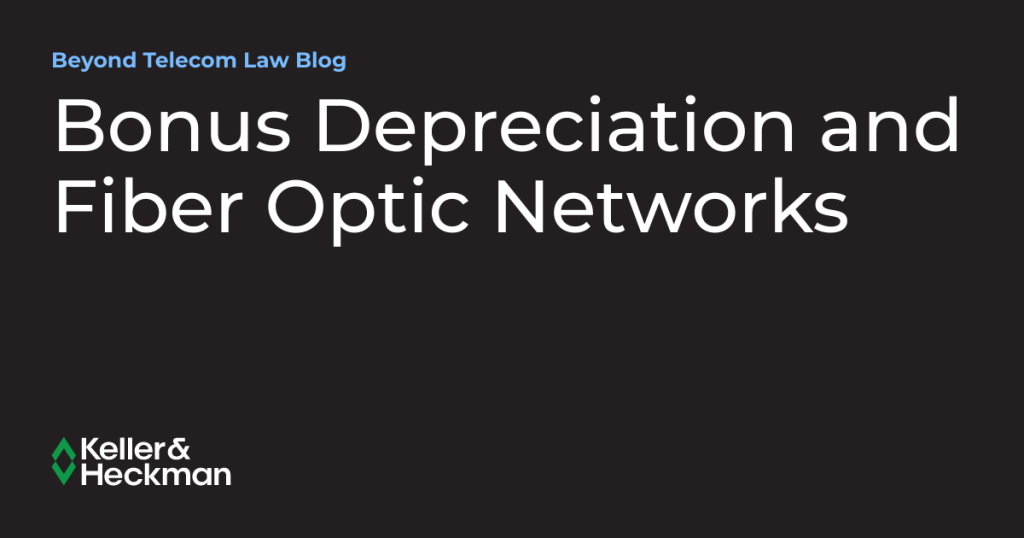New Tax Legislation Brings Opportunities and Challenges for the Telecom Industry

The telecom industry is no stranger to evolving legal and regulatory landscapes, and the One Big Beautiful Bill Act (OBBBA), signed into law on July 4, 2025, is a testament to this dynamic environment. This comprehensive budget reconciliation bill introduces several tax and spending policies designed to shape the economic framework for businesses, particularly those in the telecommunications sector. While some of the proposed changes did not make the final cut—such as tax exclusions for broadband grants—the OBBBA’s inclusion of a permanent 100% bonus depreciation provision is a game-changer for network owners and operators.
Understanding Bonus Depreciation and Its Relevance
Bonus depreciation is a tax provision that allows businesses to deduct the cost of qualifying assets at an accelerated rate, rather than over the economic life of the property. Originally introduced in 2002, this incentive has seen varied iterations over the years. Under the OBBBA, the 100% bonus depreciation provision is now permanent for eligible assets acquired and placed in service after January 19, 2025. This move aims to fuel capital investments, giving companies, particularly in the broadband and fiber optic sectors, an opportunity to lower their capital costs dramatically.
For major telecom players like AT&T, this provision promises significant benefits. As highlighted by industry insiders, the ability to defer over $1 billion annually in cash taxes could lead to increased investments in expanded infrastructure, particularly fiber optic networks. However, the applicability of bonus depreciation depends heavily on the accounting and depreciation methods a company employs.
Impact on Fiber Optic Networks
Understanding how bonus depreciation impacts fiber optic networks requires a closer look at the recovery period assigned under different accounting frameworks. While the IRS classifies fiber optic networks under a ‘class life’ of 24 years—rendering them ineligible for bonus depreciation under the Alternative Depreciation System (ADS)—the story is different when we consider the General Depreciation System (GDS). Under GDS, the recovery period for such assets is 15 years, making these assets eligible for the 100% bonus depreciation.
Telecom operators, therefore, need to carefully evaluate their tax strategies and depreciation systems. The decision can impact their ability to maximize this significant tax incentive, which aims to stimulate investments in network expansion and technological upgrades. Failure to align their accounting practices with the provision’s requirements could mean missing out on substantial financial benefits, highlighting the importance of sound financial planning and expert advice.
Final Thoughts and Expert Recommendations
It is crucial for telecom professionals to approach the OBBBA and its bonus depreciation benefits with a strategic mindset. While this tax incentive has the potential to revolutionize the cost efficiency of deploying new fiber optic infrastructure, the nuances of tax law cannot be overlooked. Consulting with knowledgeable legal and tax professionals is imperative to ensure compliance and maximize the opportunities presented by the legislation.
Keller and Heckman LLP, with its long-standing expertise in regulatory law and telecommunications, remains a leading resource for addressing these complex issues. For businesses navigating these new provisions, leveraging the insights of experienced attorneys and technical staff can provide clarity and ensure that opportunities are optimized.




